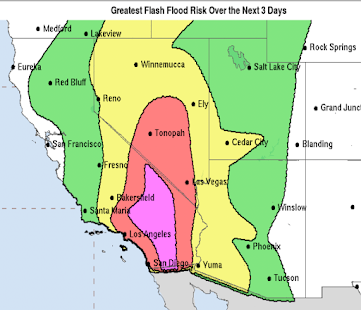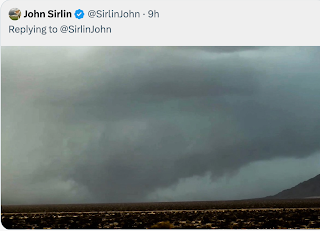The Environment and Innovation: The Reality
"The world will need more oil than we can produce by the early 1980's…we [the world] are now running out of gas and oil." -- President Jimmy Carter in his "Energy Address to the Nation."
Of course, President Carter's predictions were completely incorrect.
Right now, the world has the greatest level of proven reserves in its history and the U.S. is expected to become the world's largest oil producer by 2020.
Time after time, the doomsayers have been wrong but they never learn from experience. So, I wanted to pass along this item from The Wall Street Journal:
How many times have you heard that we humans are "using up" the world's resources, "running out" of oil, "reaching the limits" of the atmosphere's capacity to cope with pollution or "approaching the carrying capacity" of the land's ability to support a greater population? The assumption behind all such statements is that there is a fixed amount of stuff—metals, oil, clean air, land—and that we risk exhausting it through our consumption.
"We are using 50% more resources than the Earth can sustainably produce, and unless we change course, that number will grow fast—by 2030, even two planets will not be enough," says Jim Leape, director general of the World Wide Fund for Nature International (formerly the World Wildlife Fund).
But here's a peculiar feature of human history: We burst through such limits again and again. After all, as a Saudi oil minister once said, the Stone Age didn't end for lack of stone. Ecologists call this "niche construction"—that people (and indeed some other animals) can create new opportunities for themselves by making their habitats more productive in some way. Agriculture is the classic example of niche construction: We stopped relying on nature's bounty and substituted an artificial and much larger bounty.
Economists call the same phenomenon innovation. What frustrates them about ecologists is the latter's tendency to think in terms of static limits. Ecologists can't seem to see that when whale oil starts to run out, petroleum is discovered, or that when farm yields flatten, fertilizer comes along, or that when glass fiber is invented, demand for copper falls.
Please don't misunderstand: There is no reason to waste resources. Cars that get more miles per gallon are a good idea. Solar energy shows a great deal of promise. But the constant doomsaying, exhibited just this week from Big Climate in the form of a story about the "first full month with CO2 at 400 parts per million" is completely unwarranted. Like President Carter's, their forecasts of a rapid increase in temperatures with growing levels of CO2 are completely wrong.




Comments
Post a Comment